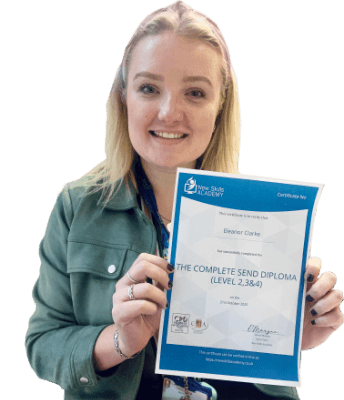Learning Blog
Benefits Of Exercise and Nutrition on Brain Health
t is no secret that exercises and eating healthy are important for overall physical health, but did you know that they are also crucial for brain health? Research has shown that exercise and nutrition can have a positive impact on cognitive function, brain plasticity and brain structure.
Exercise has been shown to increase the levels of BDNF (brain-derived neurotrophic factor), a protein that helps with neurogenesis (the growth of new neurons) and synaptic plasticity (the ability of neurons to connect). Furthermore, exercise has been linked to improved blood flow and oxygenation to the brain, which can help to improve cognitive function.
Meanwhile, a healthy diet is important for providing the nutrients needed for proper brain functioning.
Other nutrients that are important for brain health include antioxidants, B vitamins, and vitamin E. Make sure to include plenty of fruits, vegetables, whole grains, healthy fats and lean protein in your diet. Exercise is also important for brain health. It helps to improve blood flow and can reduce stress and anxiety.
Foods that are good for cognitive function
Blueberries: These little berries are packed with antioxidants and have been shown to improve memory and cognitive function.
Salmon: Salmon is a great source of omega-3 fatty acids, which are important for brain health. Omega-3s have been linked to a reduced risk of Alzheimer's disease and dementia.
Nuts and seeds: These are a good source of vitamin E, which has been shown to protect the brain from age-related damage.
Dark chocolate: Dark chocolate contains flavonoids, which are antioxidants that can help improve brain function.
Green leafy vegetables: These are rich in nutrients like vitamins A, C and E, which are important for brain health.
Eggs: Eggs are a good source of choline, which is an important nutrient for brain development.
Turmeric: This is a spice that contains curcumin, a compound that has been shown to improve memory and brain function.
Avocados: Avocados are a good source of monounsaturated fats, which have been linked to a reduced risk of Alzheimer's disease.
Oats: Oats are a whole grain that contains avenanthramides, which have been shown to protect brain cells from damage.
Green tea: This is rich in antioxidants and has been linked to a reduced risk of Alzheimer's disease.
Coffee: Coffee is a good source of caffeine, which can improve brain function.
Walnuts: These are a good source of omega-3 fatty acids, which are important for brain health.
Pomegranates: Pomegranates are a good source of antioxidants, which can help protect the brain from damage.
Acai berries: These berries are a good source of antioxidants, which can help improve brain function.
Goji berries: Goji berries are a good source of antioxidants, which can help protect the brain from damage.
Sage: This is a herb that has been shown to improve memory and brain function.
Rosemary: This herb can also improve brain function and memory.
Coconut oil: Coconut oil is a good source of medium chain triglycerides, which have been shown to improve brain function in people with Alzheimer's disease.
Supplementation To Help Cognitive Function
Ginkgo biloba: This is a herbal supplement that has been shown to improve brain function.
Bacopa monnieri: This herbal supplement has been shown to improve memory and cognitive function.
Lion's mane mushroom: This is a dietary supplement that has been shown to improve cognitive function.
Choline: An important nutrient for brain development.
Vitamin B6: Important for brain health.
Vitamin B12: Important for brain health.
Folic acid: Important for brain health.
Omega-3 fatty acids: Important for brain health.
Antioxidants: Important for brain health.
Lifestyle Factors to Improve Cognitive Function
In addition to eating brain-healthy foods, other lifestyle habits can support brain health.
Getting regular exercise: Exercise has been shown to improve brain function and protect against age-related cognitive decline.
Staying socially active: Social interaction has been linked to a reduced risk of dementia and cognitive decline.
Challenging your mind: Activities like puzzles, reading and learning new things have been linked to a reduced risk of cognitive decline.
Getting enough sleep: Sleep is important for brain health, and people who get enough sleep have been shown to perform better on cognitive tests.
Managing stress: Chronic stress can damage the brain and lead to cognitive decline. Therefore, it is important to find ways to manage stress in your life.
Quitting smoking: Smoking has been linked to an increased risk of dementia and cognitive decline.
Many lifestyle habits can support brain health. Eating brain-healthy foods, getting regular exercise, staying socially active, challenging your mind, getting enough sleep and managing stress are all important for maintaining a healthy brain. Quitting smoking is also important for brain health. These lifestyle habits can help improve brain function and protect against cognitive decline.
Exercises To Keep the Brain Sharp
It's no secret that exercise is good for the brain. Exercise has been shown to improve brain function and protect against age-related cognitive decline. But what type of exercise is best for brain health?
Research suggests that any type of exercise that gets your heart rate up and makes you sweat is good for brain health. This includes cardiovascular exercises like running, cycling and swimming, as well as yoga, tai chi and resistance training.
Aerobic exercise
This is especially beneficial for brain health. Aerobic exercise increases heart rate and breathing, and it has been shown to improve memory and cognitive function. In one study, older adults who did aerobic exercise three times per week for six months performed better on tests of mental function than those who didn't exercise.
Resistance training
In addition to aerobic exercise, resistance training is also good for brain health. Resistance training includes activities like lifting weights and using exercise bands. It has been shown to improve memory and cognitive function in older adults. In one study, older adults who did resistance training three times per week for six months performed better on tests of mental function than those who didn't exercise.
Yoga
Yoga is a type of exercise that combines both aerobic and resistance training. Yoga has been shown to improve memory and cognitive function in older adults. In one study, older adults who did yoga three times per week for six months performed better on tests of mental function than those who didn't exercise.

Tai chi
Tai chi is a type of exercise that combines both aerobic and resistance training. Tai chi has been shown to improve memory and cognitive function in older adults. In one study, older adults who did tai chi three times per week for six months performed better on tests of mental function than those who didn't exercise.
In Conclusion
If you're looking to keep your brain sharp, make sure to get some exercise, eat nutritious food, and ensure you have improved your lifestyle factors.
Learn with confidence...



 RRP
$100
RRP
$100
Get a FREE Course
Tick this box to Sign up for our newsletter, and get access to the Interview Skills and CV Writing Certificate course for free! By signing up, you agree to our Privacy Notice & Cookie Policy and to receive marketing and related emails from academy+ brands. You can unsubscribe at any time.What our students say about us...

This course is a great way to brush up on my rusty excel skills, I recommend this course to anyone looking for something to do during lockdown, it's easy to use and talks you through each stage step by step. It has given me the confidence I need to further my career.
Georgia Darke

Omg im so excited, over joyed and all the good stuff that comes to mind! Wonderful experience doing lessons with New Skills Academy. I look foward to doing more courses with them. I hope this will encourage others to come on board and refresh your minds or to learn something new, it's a win win situation. I want to thank New Skills Academy so much for making this as simple as possible for me.
Shari Anderson

Very interesting and helpful course. I ve learned a lot of interesting things about make up and the tutorials were very helpful and easy to understand. I really reccomend this course for everyone who is passionate about make up and wish to develop their skills and make a career from their hobby.
Nicoleta Lucaci

It was an eye opening course that was flexible and easy to access. I was able to complete it from the comfort of my own home whilst also having the tasks to complete which enabled me to check my knowledge. I know feel much more confident in my field of work and really enjoyed doing it.
Ellie Clarke

Excellent course, well explained and easy to understand. The course can be done at my own pace and is available on various devices. The layout of the course was excellent and the notes options is very good. The content is perfect and well structured, making it easy to understand and follow. I will definitely be taking more courses in the future.
Luis Costa

Yet another well laid out course. This is my 3rd course so far with New Skills Academy.
More than likely will be back for another one soon. This course was enjoyable to do, and I learnt a lot and passed first try. My certificate will be up on the wall soon.
Rob Coops

Lovely course for people who want to know the basics and of sign language. It's has helped me to get more of an understanding and will greatly benefit me in my workplace. So easy to pick up and the videos were easy to understand. Would definitely recommend to anyone.
Chloe Hambly

I took up this course initially to help me with my own dog, but found that as I worked through the material I actually started thinking that this could be something that I could use to make a second income. From start to finish I found the course engaging and interesting. I am now doing another dog related course and am experiencing the same level of enjoyment. I would recommend New Skills Academy without hesitation.
Keith Smith







